Search Results
Showing results 1 to 20 of 96
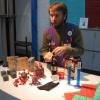
Surface Area
Source Institutions
In this demonstration, learners discover that nanoparticles behave differently, in part because they have a high surface area to volume ratio.
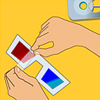
Seeing 3D
Source Institutions
Create 3D glasses and use them to explore color, light and optics. Fool your brain into 'seeing' three dimensions on a flat surface!
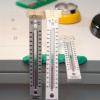
Hot Equator, Cold Poles
Source Institutions
In this activity, learners use multiple thermometers, placed at different angles, and a lamp to investigate why some places on Earth's surface are much hotter than others.
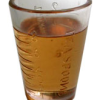
Find the Fat
Source Institutions
Fat is a very important component in our diet. It's the most efficient source of energy in our bodies, and plays an important role in the flavor of foods.
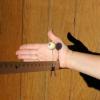
Why Do Eclipses Happen?
Source Institutions
This fun and simple hands-on astronomy activity lets learners create 3D models of the Earth, Moon and Sun to demonstrate solar and lunar eclipses.

Subtractive Paint Prints
Source Institutions
In this activity, learners of all ages will experiment with paint and printmaking.
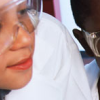
DNA Modeling Activity
Source Institutions
Using pipe cleaners, straws, and beads, learners explore the building blocks of life by creating their own model of DNA.
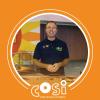
Build an Electromagnet
Source Institutions
In this activity, learners will build a simple electromagnet. They will test variables that would make the electromagnet stronger.
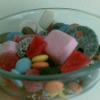
Candy Dish Natural Selection
Source Institutions
In this yummy biology activity (page 3 of the PDF), learners participate in a demonstration of natural selection.
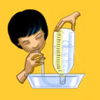
Lung Capacity
Source Institutions
This is an activity about lung capacity. Learners will measure their own lung capacity using a homemade spirometer.
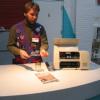
Inkjet Printer
Source Institutions
In this activity, learners investigate how inkjet printers produce tiny, precise drops of ink.
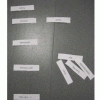
Life Size: Line 'em up!
Source Institutions
In this activity on page 1 of the PDF, learners compare the relative sizes of biological objects (like DNA and bacteria) that can't be seen by the naked eye.

Safer with Science-Masks
Source Institutions
Why should we wear masks? Do masks work? Do some masks work better than others? Learners find out in this activity.
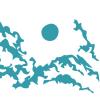
Bonseki Salt Art
Source Institutions
In this activity learners will be creating art using a traditional Japanese art style.
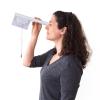
Height Sight
Source Institutions
In this activity, learners build a tool called an inclinometer that can find the height of any distant object, from a tree to the North Star.

3-2-1 POP!
Source Institutions
In this physics activity, learners build their own rockets out of film canisters and construction paper.
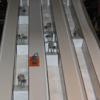
Echo Base Bobsleds
Source Institutions
The goal of this activity is to build a miniature bobsled that is either the fastest or the slowest. Learners use recycled materials to design, build, and test their bobsled on a bobsled track.
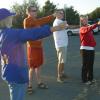
Does the Moon Rotate?
Source Institutions
This fun and simple hands-on astronomy activity lets learners make 3-dimensional models of the Earth and Moon.
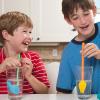
Make a Heart Valve
Source Institutions
In this activity, learners make a model of a one-way heart valve to investigate how a heart controls the direction of blood flow.

Earthquake Energy
Source Institutions
In this geology activity (page 3 of the PDF), learners simulate an earthquake with little more than an elastic band and drinking straws.
